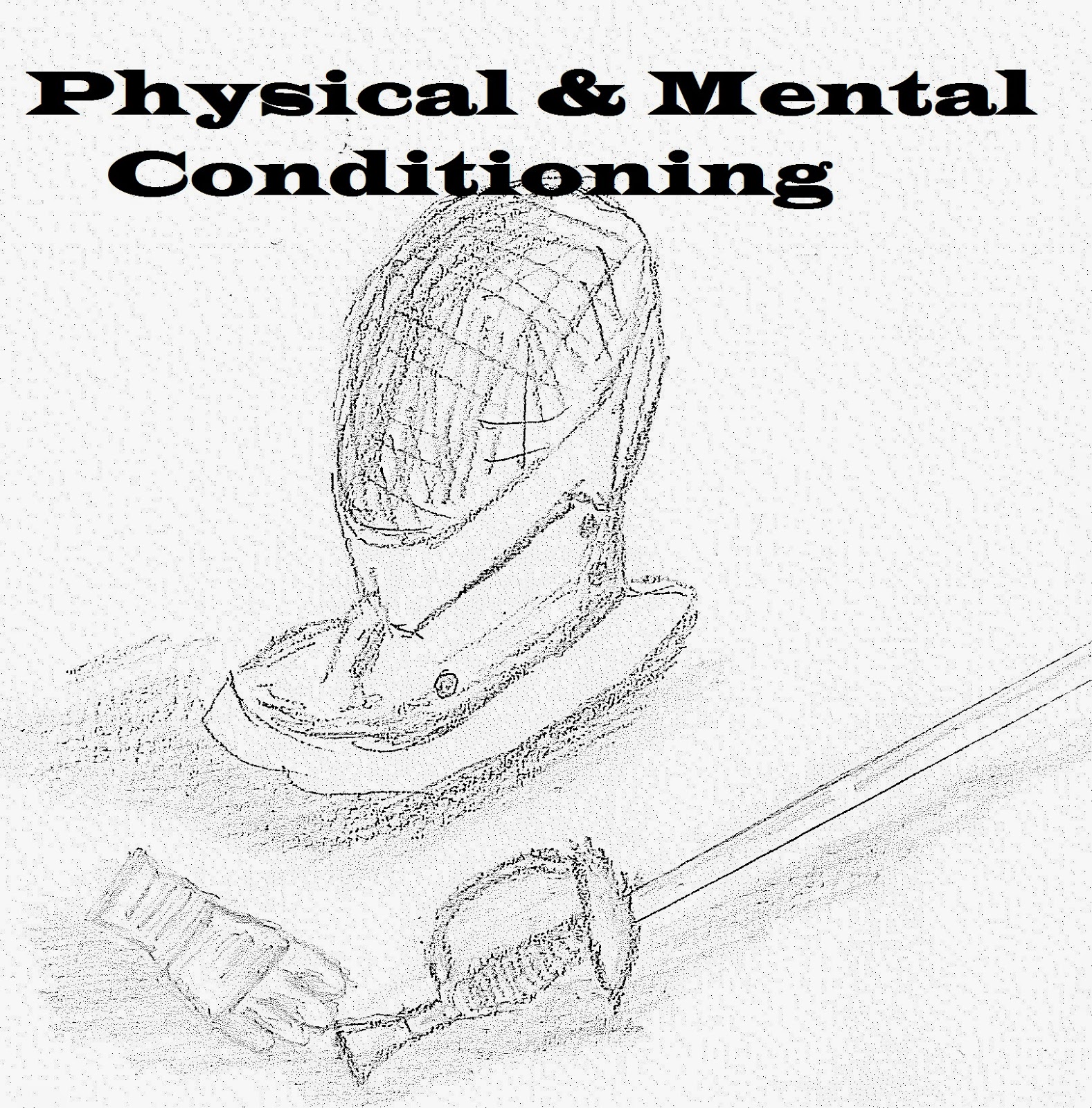Fencing is a sport that is one part
physical and one part mental. Conditioning both helps to ensure that you are at
the top of your game. The process of conditioning is through practice and
experience. Conditioning is not found through only fencing practice but also in
complementary activities. It has been argued that fencing during practice is
95% physical and 5% mental while in tournament it is the exact opposite (1).
It is first beneficial to understand
what physical and mental conditioning means. Physical conditioning requires the preparation
of the body for rigorous aerobic exercise and ensuring the muscles are both
tone and have endurance. Mental conditioning includes learning a variety of
movements, ensuring quick reaction, and perceptive within the game.
Physical conditioning requires the
ability to engage in aerobic, stamina, and physical strength (2). Fencing requires heavy clothing and lots of
speed and can get most athletes winded quickly. The body must be prepared to
take on these jumps, movements, and leaps or you will simply lose from being out
maneuvered. Engaging in sprinting, swimming, tennis, weight training, and other
activities conditions the body as well as ensures coordination of movements (3).
The concept of physical conditioning in
fencing is not new. Dating back as far as 1400 instructors like Vittorino
da Feltre stated that fencing “required
as a correlative to a fine intellectual humanism a standard of physical
excellence and personal bearing to match (4)." His
argument was that fencers needed to wear the right clothing, handle the
elements of nature, and need to be conditioned for the sport.
In addition to the body the brain
must also be conditioned. A person must memorize, internalize and use the
various movements that act and interact against an opponent. This requires
having a thorough understanding of the sport and judging the body mechanics of
the opponent to maintain a leading edge. Without the mental conditioning overreaction,
slow reaction, and sequence failure is likely to occur.
Fencers should understand how their
personality impacts their performance. Fencer personalities can be categorized
as active, passive, risk oriented, risk averse, cautious, offensive and defensive
(5). A person’s personality will determine their
overall style, what movements they should focus on, and their weaknesses within
the sport.

No comments:
Post a Comment